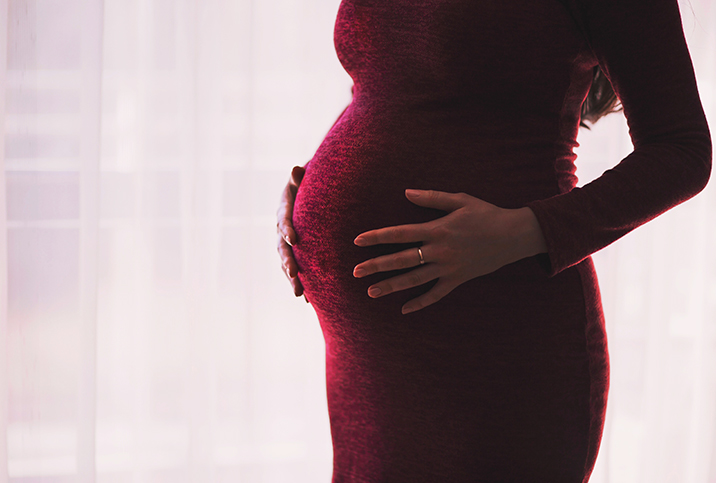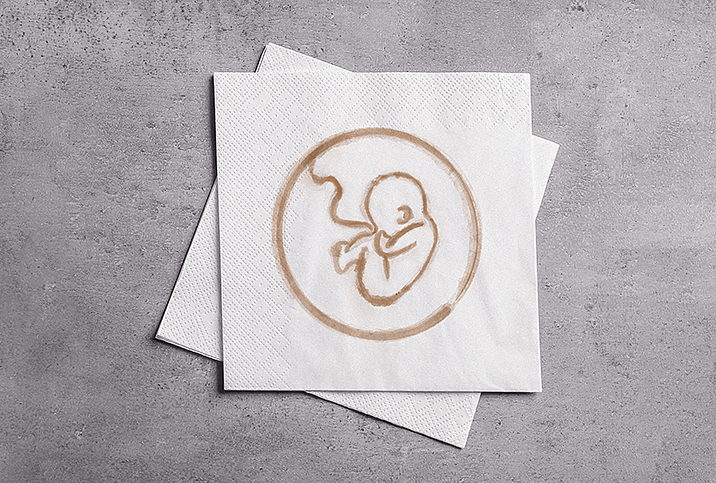Pregnancy After Age 35

If you're a woman past the age of 35 who is pregnant or trying to conceive, you're likely aware of the concerns that are often raised regarding having children later in life. Those concerns are legitimate, but by taking proper precautions and closely coordinating with your obstetrician, you can minimize worry and risk for you and your baby.
What it means to be 'high risk'
As natural as childbirth is, it always comes with associated risks that increase as women age. For example, a woman older than 35 may not have issues with a pregnancy, but she could have more trouble getting pregnant because she has fewer and lower-quality eggs. Also, hormonal changes that cause a release of multiple eggs may lead to a greater chance of multiple births; such an outcome is often a result of in vitro fertilization (IVF). Other factors that may lead to a high-risk pregnancy include drinking, smoking, and health problems such as diabetes and high blood pressure.
You may also be at high risk for pregnancy problems such as gestational diabetes, a condition that can cause your baby to grow larger, which in turn can cause high blood pressure for the mother during pregnancy, premature birth or injury risk at delivery. High blood pressure during pregnancy is more common in women over 35 and may require more frequent obstetrician appointments or even an early delivery to avoid complications.
Premature birth, in general, is more common in high-risk pregnancies, as is having a child with low birth weight. Both can increase the risk of medical complications for your child.
Children of older women are also more likely to have chromosomal abnormalities, which can result in congenital anomalies or conditions such as Down syndrome. Women over 35 are more likely to need a cesarian delivery (C-section) due to a higher risk of pregnancy complications such as placenta previa. Finally, pregnancy loss due to miscarriage or stillbirth is more common in women over 35. Some research suggests an older father may further increase the risk of complications for your child.
These potential problems notwithstanding, pregnancies for women over age 35 have steadily risen in the United States in the past four decades: up nearly 300 percent from rates in the 1970s.
Precautions
To reduce the risk of gestational diabetes and hypertension, eat a nutrient-dense balanced diet and stay physically active. High-risk pregnancies are monitored closely and more frequently to ensure the health of the baby and to detect medical problems or significant chromosomal anomalies early. Monitoring should increase in the last few weeks of your pregnancy.
As with any healthy pregnancy, women over 35 should practice a healthy lifestyle. Don't drink, smoke or do drugs. Avoid alcohol and caffeine, as well as unsafe foods such as raw or high-mercury fish. Review all your medications, including over-the-counter ones, with your doctor. Speak to your obstetrician about what weight gain may be appropriate and how to prevent it from becoming excessive.
Benefits of being an older mom
While the risks may be greater, being an older mom also means having more life experience and, therefore, possibly greater maturity and emotional preparedness. Studies show older moms tend to be more financially stable and more patient with their children.
To minimize worry, speak to your obstetrician early on about your concerns—before you get pregnant, if possible, so you go into it fully prepared. Do your own research, too. See your obstetrician or midwife early and frequently: The sooner you start taking prenatal vitamins (with 400 micrograms or more of folic acid, as well as iron, calcium and vitamin D), the better for you and your baby. Start practicing a healthy lifestyle, even before you get pregnant. It may actually help you conceive. Consider prenatal testing for chromosomal abnormalities, particularly cell-free DNA testing. And see a doctor immediately if you experience any concerning symptoms, such as cramping, vaginal bleeding or high fever.
For many women, having children is one of the great joys in life, and doing it a little later does not necessarily mean a pregnancy will have problems. Knowing what to expect and working closely with your obstetrician can help ease the path to motherhood.

















